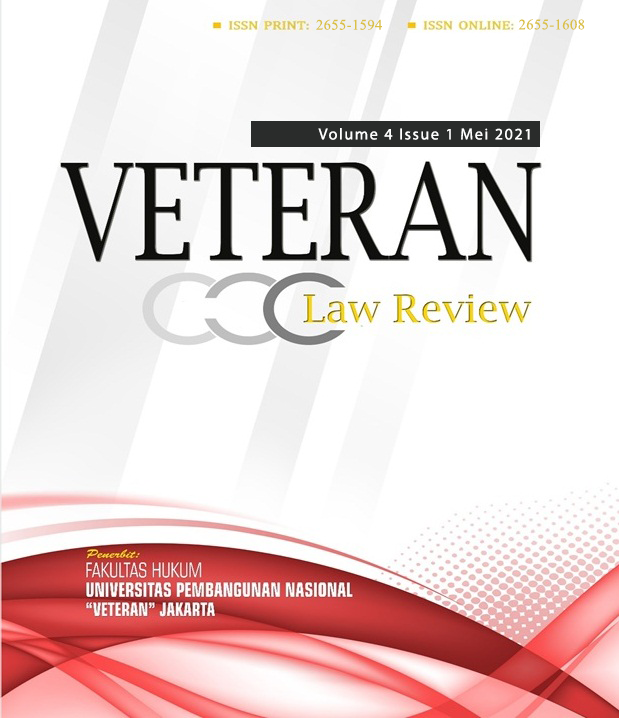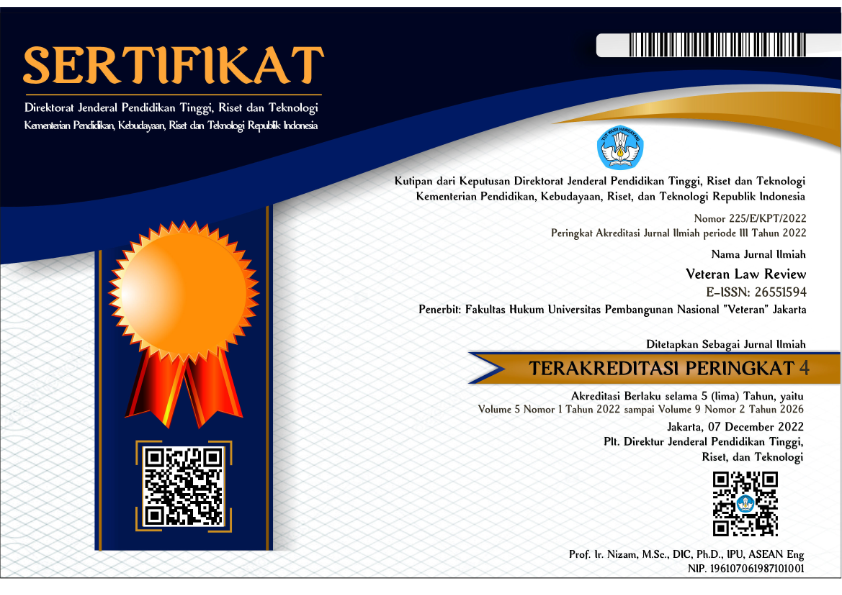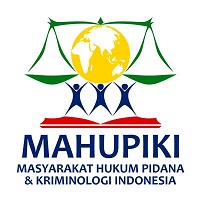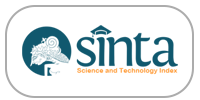Transfer of Assets With Share of Foundations to A Limited Company in The Perspective of The Foundation Act and The Limited Company Law
DOI:
https://doi.org/10.35586/velrev.v4i1.2670Abstract
Foundations that run a profit-seeking business are not prohibited as long as the profit-seeking business is not directly carried out by the Foundation, but by establishing a limited liability company. The problem in this thesis is how the position of foundation assets transferred in the form of shares to Limited Liability Companies is examined from the perspective of the Foundation Law and the Limited Liability Company Law, how the process of transferring Foundation assets in the form of shares to Limited Liability Companies is reviewed from the perspective of the Foundation Law and the Limited Liability Company Law. This type of research is normative juridical, namely research based on law. Data analysis was carried out qualitatively, which is a form of analysis that does not rely on numbers but on sentences. Drawing conclusions in this paper is done using deductive-inductive thinking logic, which is done with the theory used as a starting point for conducting research. The results showed that the position of the foundation's assets was as the initial assets of the foundation. The process of transferring Foundation assets that is not in accordance with Law Number 28 of 2004 concerning Foundations is if the transfer is carried out by the management of the Foundation without the approval of the Foundation's supervisor and the provisions contained in the Foundation's Articles of Association. The transfer of Foundation assets illegally to shares in a Limited Liability Company is null and void, because it is against the Foundation Law, the Limited Liability Company Law and the provisions of Article 1335 of the Civil Code and 57 paragraph (1) letter b of Law No. 40 of 2007 concerning Limited Liability Companies which require the transfer of shares must obtain prior approval from the company's organs.
Downloads
References
Adib Bahari. (2010). Prosedur Pendirian Yayasan, Pustaka Yustisia. Yogyakarta.
Anwar Borahima. (2010). Kedudukan Yayasan DiIndonesia. Jakarta: Kencana Prenada Media Group.
Arie Kusumastuti Maria Suhardiadi. (2012). Hukum Yayasan di Indonesia. Jakarta: Center Publishing.
Chatamarrasyid Ais. (2000). Tujuan Sosial Yayasan dan Kegiatan Usaha Bertujuan Laba. Bandung: Citra Aditya Bhakti.
Gunawan Widjaya. (2012). Yayasan di Indonesia Suatu Panduan Kornprehensif. (Jakarta: Elex Media Komputindo.
Johnny Ibrahim. (2017). Teori dan Metodologi Penelitian Hukum Normatif. Malang: Bayumedia Publishing.
Lexy J Moleong. (2003). Metodologi Penelitian Kualitatif. Bandung: Remaja Rosdakarya.
N. Adnan Amal. (2016). Yayasan Sebagai Badan Hukum.
Pujiyono. (2014). Hukum Perusahaan. Surakarta: Pustaka Hanif.
Prassetya Rudhi. (2012).Yayasan Dalam Teori dan Praktik. Jakarta: Sinar Grafika.
Rita M.L. & J. Law Firm. (2009). Resiko Hukum Bagi Pembina, Pengawas & Pengurus Yayasan. Jakarta: Forum Sahabat.
Dirkareshza, R. (2019). Kompetensi DPD RI Dalam Mengemban Amanah Undang–Undang Nomor 2 Tahun 2018 Tentang MPR, DPR, DPD dan DPRD Sebagai Lembaga Tinggi Negara. Jurnal Yuridis, 6(2), 1-32.
Soerjono Soekanto dan Sri Mamudji. (2005). Penelitian Hukum Normatif. Jakarta: Rajawali Pers.
Yoseph Suardi Sabda. (2002). Yayasan dan Perbuatan Melanggar Hukum” Makalah dibawakan oleh Direktur Perdata Kejaksaan Agung pada seminar Good Governance Kejaksaan Agung Republik Indonesia. Jakarta.
Downloads
Published
How to Cite
Issue
Section
License
Copyright (c) 2022 Veteran Law Review Journal
Veteran Law Review © 2022 by Faculty of Law Universitas Pembangunan Nasional "Veteran" Jakarta is licensed under Creative Commons Attribution 4.0 International

1. License
The non-commercial use of the article will be governed by the Creative Commons Attribution license as currently displayed on Creative Commons Attribution 4.0 International.
2. Author(s)' Warranties
The author warrants that the article is original, written by the stated author(s), has not been published before, contains no unlawful statements, does not infringe the rights of others, is subject to copyright that is vested exclusively in the author, and free of any third party rights, and that any necessary written permissions to quote from other sources have been obtained by the author(s).
3. User/Public Rights
VELREV's spirit is to disseminate articles published are as free as possible. Under the Creative Commons Attribution-ShareAlike 4.0 International License. VELREV permits users to copy, distribute, display, and perform the work for non-commercial purposes only. Users will also need to attribute authors and VELREV to distributing works in the journal and other media of publications.
4. Rights of Authors
Authors retain all their rights to the published works, such as (but not limited to) the following rights;
- Reproduce the work
- Prepare derivative works based upon the work
- Distribute copies of the work
- Perform the work publicly
- Display the work publicly
- Copyright and other proprietary rights relating to the article, such as patent rights,
- The right to self-archive the article,
- The right to enter into separate, additional contractual arrangements for the non-exclusive distribution of the article's published version (e.g., post it to an institutional repository or publish it in a book), with an acknowledgement of its initial publication in this journal (Veteran Law Review).
5. Co-Authorship
If the article was jointly prepared by more than one author, any author submitting the manuscript warrants that he/she has been authorized by all co-authors to be agreed on this copyright and license notice (agreement) on their behalf, and agrees to inform his/her co-authors of the terms of this policy. VELREV will not be held liable for anything that may arise due to the author's internal dispute. VELREV will only communicate with the corresponding author.
6. Royalties
Being an open accessed journal and disseminating articles for free under the Creative Commons license term mentioned, author(s) are aware that VELREV entitles the author(s) to no royalties or other fees.
7. Miscellaneous
VELREV will publish the article (or have it published) in the journal if the article’s editorial process is successfully completed. JOSI's editors may modify the article to a style of punctuation, spelling, capitalization, referencing, and usage that deems appropriate. The author acknowledges that the article may be published so that it will be publicly accessible and such access will be free of charge for the readers as mentioned in point 3.


















